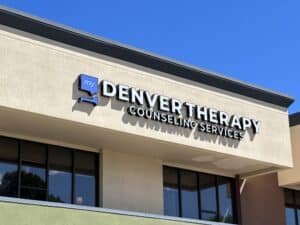How do you know if your therapist is the right one for you?
When seeking therapy, it’s important to find a therapist who is the right fit for you and your specific needs. But how do you know if your therapist is the right one for you, because starting therapy can be intimidating at first, so how can you decipher if you’re with the right therapist? Some good signs to look for are, if you feel comfortable, understood and heard, challenged, are you seeing progress, and do they have the right certifications to best assist your needs. These are good signs to look for, but remember, much like anything new, give yourself sometime to make a decision on if your therapist is a good fit for you.
Taking a deeper look into these signs to look for, first, taking note if you personally feel comfortable with your therapist. Therapy can be a vulnerable experience, so it’s important that you feel comfortable with your therapist to truly open up about your trauma, depression, heavy thoughts, life struggles. If you’re not comfortable sharing your thoughts and feelings with your therapist, it may be a sign that they’re not the right fit for you and your specific needs. Be patient and give yourself time to explore who is best suitable for who you are and your specific personality, needs, and tendency.
A therapist who could be a good fit for you will also intensively listen and seek to understand you. A well trained, compassionate therapist will listen to you and try to understand your perspective on life’s circumstances, your personal response and choices, and the ways you’re reacting to all of life’s ups and downs. They won’t judge you or dismiss your feelings. If you feel like your therapist isn’t listening to you or isn’t trying to understand your perspective, it may be a sign that they’re not simply just not a good fit for you and what you’re walking through.
You should take note if your therapist is challenging you. While it’s important to feel comfortable with your therapist, it’s also important that they challenge you, your way of thinking, and your actions. A good therapist will push you to think about things in a different way and to try new things to better yourself and help you re-pattern old thoughts and create healthier habits. If you feel like your therapist isn’t challenging you, if you’re not seeing mental or external growth, this could be a sign that either your therapist isn’t a good fit for you or that you’re not applying yourself to the suggestions being given.
Next, they should have the right expertise, certifications, and training to best assist your needs. Different therapists have different areas of expertise and some specialize in different types of therapy, so this is something you should look into when searching for your therapist. If you’re struggling with a specific issue, it’s important to find a therapist who has experience working with that issue over someone who is just personable and fun to talk to. For example, if you’re struggling with anxiety, you may want to find a therapist who specializes in anxiety instead of a general therapist, this will help ensure you’re getting the most out of your therapy experience as well as see the greatest results.
Lastly, you should see progress after some time. Therapy is a process, but you should see progress over time, and if you’re not it’s time to re-evaluate what is working and what isn’t working. If you don’t feel like you’re making progress or if you feel like you’re stuck, it may be a sign that your therapist may not be the greatest fit for you, or it possibly could be you not applying yourself to the process. To try to be open to whatever conclusion you come to when evaluating your personal journey.
Having a good therapist is important for several reasons
- They can provide a safe and non-judgmental space for you to express your thoughts, feelings, and share your experiences.
- They can help you gain insight into your behavior and thought patterns, allowing you to make positive changes as well as work through past traumas.
- They can teach you coping mechanisms and tools to manage stress, anxiety, and other mental health issues that are hindering your life.
- They can assist you in developing a better understanding of yourself and your relationships with others and provide tools to help you maintain healthy relationships.
- They can support you on your journey towards personal growth, healing and wholeness.
Remember, finding the right therapist may take some time, so give space to process what you’re thinking and how you’re feeling before making a decision. Don’t be afraid to try out different therapists until you find the right fit for you, this journey is about you healing and working through your own life’s journey so be selfish in your approach to finding who can best assist you. And if you’re not sure if your therapist is the right one, don’t be afraid to bring it up with them sharing your concerns or questions. They may be able to make adjustments to better meet your needs but nothing can ever be solved without open lines of honest, kind, and truthful communication.







